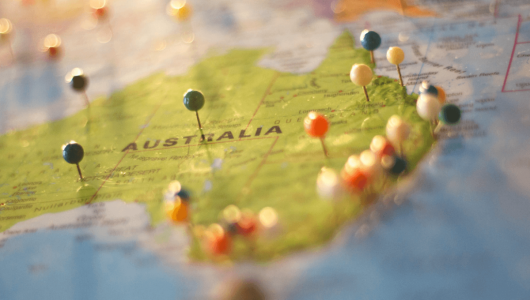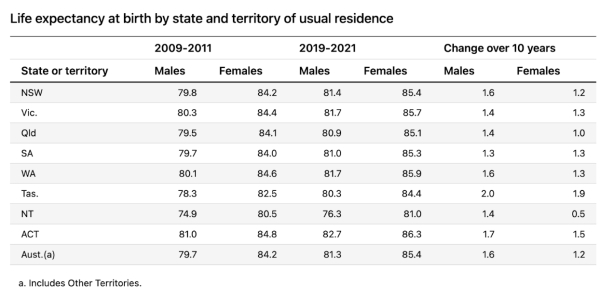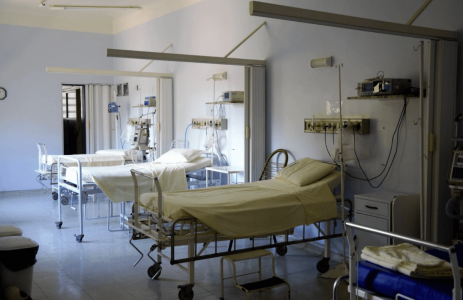Could living in the outback shorten your lifespan? New statistics say yes
- Replies 1
It was out of nowhere when Lisa Marie Cornwell experienced several unusual symptoms, such as night sweats, fatigue, and weight loss, but at first, she brushed them off as simple side effects of getting older.
However, in time, she started experiencing some more severe symptoms and she was forced to see a doctor.
Ms Cornwell was getting ready to marry her sweetheart when she was diagnosed with breast cancer and given just three months to live.
Even though the 35-year-old, who resides in Charleville in southwestern Queensland, was initially given a grim prognosis, she has managed to defy all odds and is still alive today, five years later.
However, her health is being closely monitored after the recent reappearance of a brain tumour that is currently classified as 'mostly stable'.

While the current state of her condition may be positive, typically, this brain tumour is known for being highly aggressive and life-threatening.
As a result, she must travel to Toowoomba twice every three weeks during her initial period of chemotherapy. 'I didn't want to, but I had to fight for my family,' she said.
Then she began receiving care in Roma, a three-hour trip away, and, most recently, she returned to her hometown of Charleville to be closer to her job and her loved ones.
'There are no facilities out here to officially diagnose cancer,' Ms Cornwell shared, saying that Charleville is too remote for anyone to care for patients with cancer.
She added: 'We were at a time when we didn't have consistent doctors, so there was no one person over my care, and if there had been, I'd say they would have picked this up sooner.'
It's unfortunate but true – life expectancy varies throughout Australia. According to data recently released by the Australian Bureau of Statistics (ABS), outback Queenslanders' life expectancy is 76.6 years for males and 80.4 years for females.
The area between the Cape York Peninsula and the Northern Territory border, across central Queensland, to the borders of New South Wales and South Australia, is referred to as outback Queensland, according to the ABS.
Compared to the rest of Queensland, life expectancy in the outback is five years shorter. To compare, this is the life expectancy average throughout Australia:

The Australian Capital Territory had the highest male (82.7 years) and female (86.3 years) life expectancy.
The lowest life expectancy is in the Northern Territory outback for both males and females with 71.7 years and 77.1 years respectively.
Even though the statistics were not unexpected for Rural Doctors Association of Queensland (RDAQ) president Matt Masel, he was still concerned about the lopsided distribution.
'It's concerning, but it's perhaps not terribly surprising,' Dr Masel said, explaining that there were two factors contributing to a shorter life expectancy in rural areas.
'Access to healthy foods is harder, and access to GPs and regular general practice care is lower, so rural patients find it harder and sometimes impossible to get the checks to find those chronic diseases, and to treat them in their early stages.'
While the most recent data does not include a breakdown of the life expectancy of First Nations Australians, the Australian Bureau of Statistics estimates that the life expectancy gap will continue to grow with urban and rural dwellers alike.

Lisa Marie Cornwell now works as a Royal Flying Doctor Service's practice coordinator, and she has found a way to surmount her health issues and given up on the idea of moving to urban areas in favour of seeking treatment in her hometown of Charleville. With support from the RFDS, she is working to make a difference in people's lives.
'With chemotherapy in Toowoomba being the hardest part, I still have to go there for scans,' she said. 'But the treatment, only in the last three months, has been granted in Charleville.'
Ms Cornwell said that, despite the challenges she faces, she is happy because 'out here is a special life that we choose, that we love, and that's why we're here’.

To our members who are experiencing some troubling symptoms, we recommend that you see a doctor as soon as possible to rule out any health issues. There's never a wrong time to make an appointment with your GP if you need a professional opinion on how to manage minor aches, pains and fevers.
Health problems, even the smallest ones, can quickly become big ones if we ignore them. Be sure to take care of your well-being and give our recommendations in the Health & Wellness forum on the website a read!
We wish you all the best, members, and please stay safe always!
However, in time, she started experiencing some more severe symptoms and she was forced to see a doctor.
Ms Cornwell was getting ready to marry her sweetheart when she was diagnosed with breast cancer and given just three months to live.
Even though the 35-year-old, who resides in Charleville in southwestern Queensland, was initially given a grim prognosis, she has managed to defy all odds and is still alive today, five years later.
However, her health is being closely monitored after the recent reappearance of a brain tumour that is currently classified as 'mostly stable'.

Outback Queensland has the lowest life expectancy in the state, five years less than the state average. Credit: Pexels/Catarina Sousa.
While the current state of her condition may be positive, typically, this brain tumour is known for being highly aggressive and life-threatening.
As a result, she must travel to Toowoomba twice every three weeks during her initial period of chemotherapy. 'I didn't want to, but I had to fight for my family,' she said.
Then she began receiving care in Roma, a three-hour trip away, and, most recently, she returned to her hometown of Charleville to be closer to her job and her loved ones.
'There are no facilities out here to officially diagnose cancer,' Ms Cornwell shared, saying that Charleville is too remote for anyone to care for patients with cancer.
She added: 'We were at a time when we didn't have consistent doctors, so there was no one person over my care, and if there had been, I'd say they would have picked this up sooner.'
It's unfortunate but true – life expectancy varies throughout Australia. According to data recently released by the Australian Bureau of Statistics (ABS), outback Queenslanders' life expectancy is 76.6 years for males and 80.4 years for females.
The area between the Cape York Peninsula and the Northern Territory border, across central Queensland, to the borders of New South Wales and South Australia, is referred to as outback Queensland, according to the ABS.
Compared to the rest of Queensland, life expectancy in the outback is five years shorter. To compare, this is the life expectancy average throughout Australia:

This report gives estimates of life expectancy based on the number of deaths from 2019 to 2021. Credit: Australian Bureau of Statistics (ABS).
The Australian Capital Territory had the highest male (82.7 years) and female (86.3 years) life expectancy.
The lowest life expectancy is in the Northern Territory outback for both males and females with 71.7 years and 77.1 years respectively.
Even though the statistics were not unexpected for Rural Doctors Association of Queensland (RDAQ) president Matt Masel, he was still concerned about the lopsided distribution.
'It's concerning, but it's perhaps not terribly surprising,' Dr Masel said, explaining that there were two factors contributing to a shorter life expectancy in rural areas.
'Access to healthy foods is harder, and access to GPs and regular general practice care is lower, so rural patients find it harder and sometimes impossible to get the checks to find those chronic diseases, and to treat them in their early stages.'
While the most recent data does not include a breakdown of the life expectancy of First Nations Australians, the Australian Bureau of Statistics estimates that the life expectancy gap will continue to grow with urban and rural dwellers alike.

People who live in remote rural areas don't have as much access to modern health care as people who live in cities. Credit: Pexels/Pixabay.
Lisa Marie Cornwell now works as a Royal Flying Doctor Service's practice coordinator, and she has found a way to surmount her health issues and given up on the idea of moving to urban areas in favour of seeking treatment in her hometown of Charleville. With support from the RFDS, she is working to make a difference in people's lives.
'With chemotherapy in Toowoomba being the hardest part, I still have to go there for scans,' she said. 'But the treatment, only in the last three months, has been granted in Charleville.'
Ms Cornwell said that, despite the challenges she faces, she is happy because 'out here is a special life that we choose, that we love, and that's why we're here’.
Key Takeaways
- Outback Queenslanders have a life expectancy that is five years lower than the state average.
- This is due to several factors, including access to healthcare and nutritious food.
- The Royal Flying Doctor Service is working to improve access to care for remote communities.
Health problems, even the smallest ones, can quickly become big ones if we ignore them. Be sure to take care of your well-being and give our recommendations in the Health & Wellness forum on the website a read!
We wish you all the best, members, and please stay safe always!







